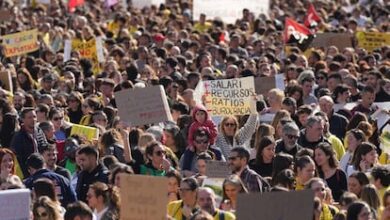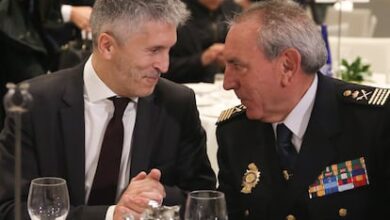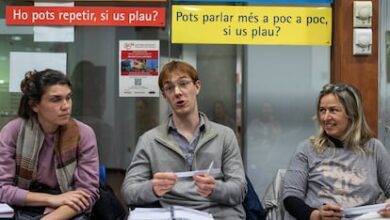
Barcelona hosted the VII Proa Prize ceremony, one of the most prestigious awards for Catalan-language literature. This year’s winner was Núria Cadenes with her novel ‘Qui salva una vida’, already hailed as one of the strongest works on World War II written in Spain over the past decade.
At the heart of the story is the fate of priest Joan Domènech, the writer’s uncle, who, in the 1940s as the rector of Puigcerdà, organized a clandestine network in the mountain region of Cerdanya to help people cross the border. This network helped a diverse group escape Nazi persecution—Jews, Allied pilots, deserters. In Cadenes’s novel, real-life biographies are skillfully interwoven with fictional characters, giving the narrative a special depth and authenticity.
The jury highlighted not only the book’s historical accuracy, but also its emotional richness. The author managed to show how ordinary people in Catalonia, without power or special resources, made decisions on which other lives depended. Among the characters are a communist with a family, a cinema ticket taker, nuns, train operators, a future poet, and a medical student. Each was drawn into dangerous but vital work to save fugitives. Many of these people truly existed, some are composite images, but all are united by the idea of basic humanity and a willingness to sacrifice.
Literature as a means to preserve memory
Cadenes admits she hesitated for a long time before tackling this topic, as it concerned her own family and people she knew personally. However, it was precisely this personal connection that allowed her to convey the atmosphere of those years—fear, uncertainty, yet also hope. There is no heroization in the novel; on the contrary, the author emphasizes that the members of the underground network were ordinary people, expecting neither rewards nor recognition. Their actions were driven by an inner sense of justice and compassion.
A special place in the book is given to the figure of Joan Domènec, known in Catalonia as Mossèn Perdó. After the war, he was awarded the French Legion of Honour and later moved to the Dominican Republic, where he openly opposed the Trujillo dictatorship. Upon returning home, he continued his ministry in a small Catalan town.
A novel that makes you think
The release of ‘Qui salva una vida’ is scheduled for November, and the book is already attracting great interest from both readers and critics. In today’s world, where individualism often takes precedence over collective values, this story about people who risked everything for others sounds especially relevant. Cadenes hopes her novel will help preserve the memory of those who dared to defy the system and save lives despite the danger.
The Proa Prize, established to support and promote Catalan-language literature, considered 26 manuscripts this year. Cadens’ victory was seen as recognition not only of her literary talent, but also of the importance of the topic she addressed. In previous years, the prize has been awarded to writers such as Jordi Nopca, Francesc Serés, Maite Salord, Martí Domínguez, Laura Gost, and Eva Comas-Arnal.
The story told in ‘Qui salva una vida’ serves as a reminder that even in the darkest times, there are those willing to offer a helping hand. The names of these people may not always be widely known, but their actions continue to inspire today.












